For our first Story Game Sunday of 2014, we played Technoir. This was the first of two sessions. I’ll share my thoughts after we finish with it, but so far I really like it. Today’s session was about twice as fun as any game of Shadowrun I’ve ever been involved in.
Thanks to Daniel Lewis for running it!
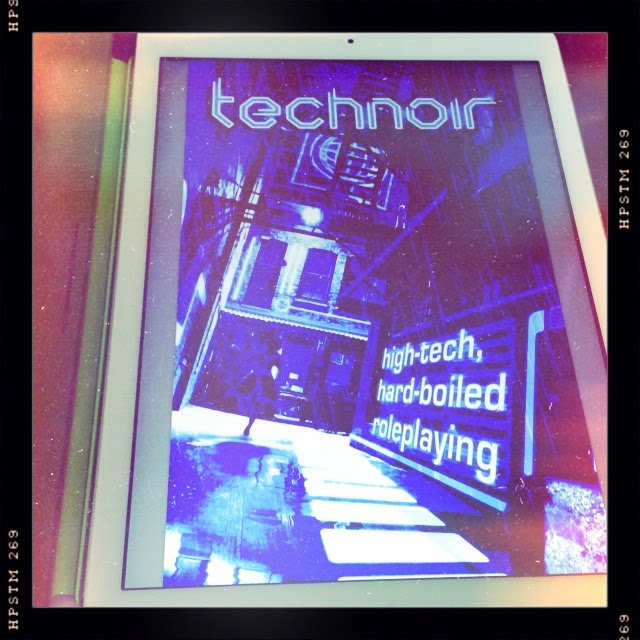
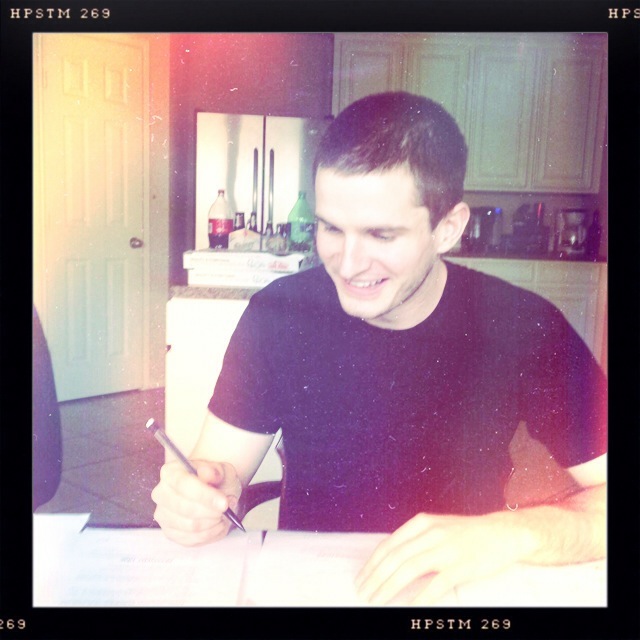
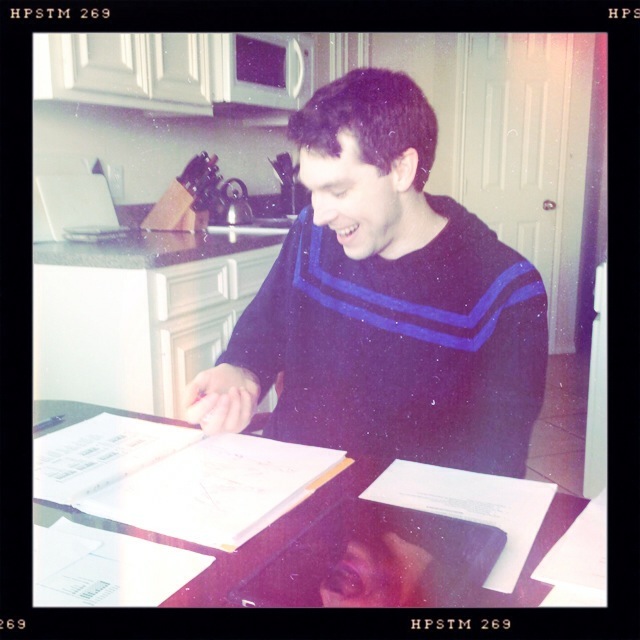
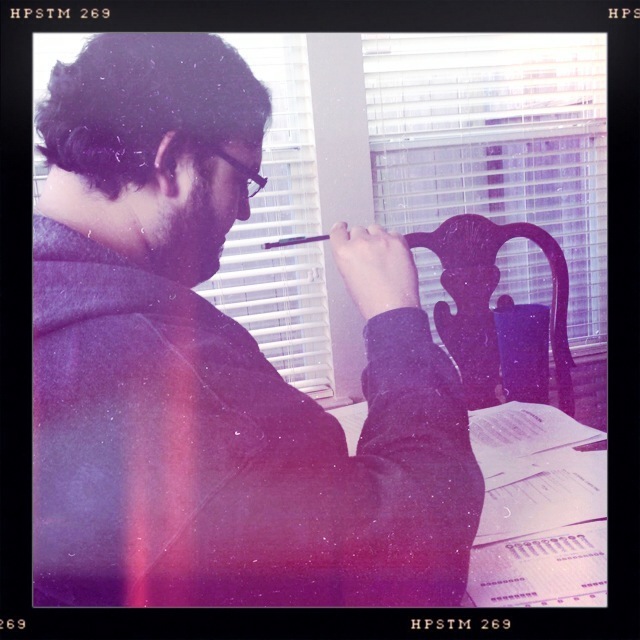
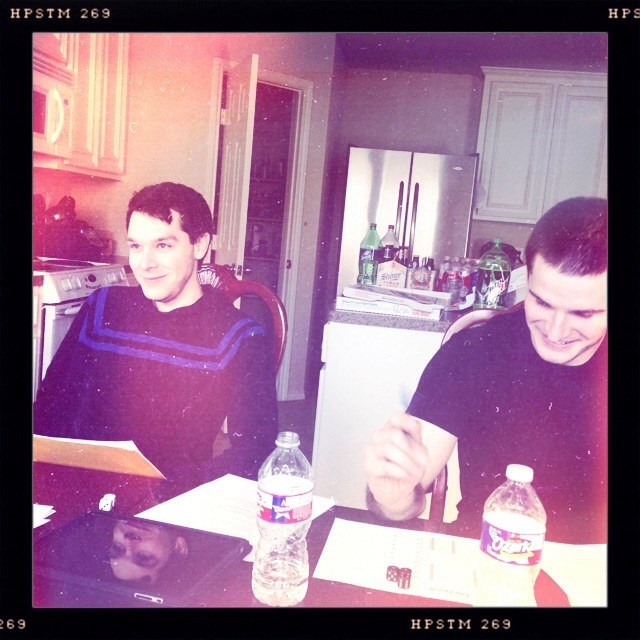
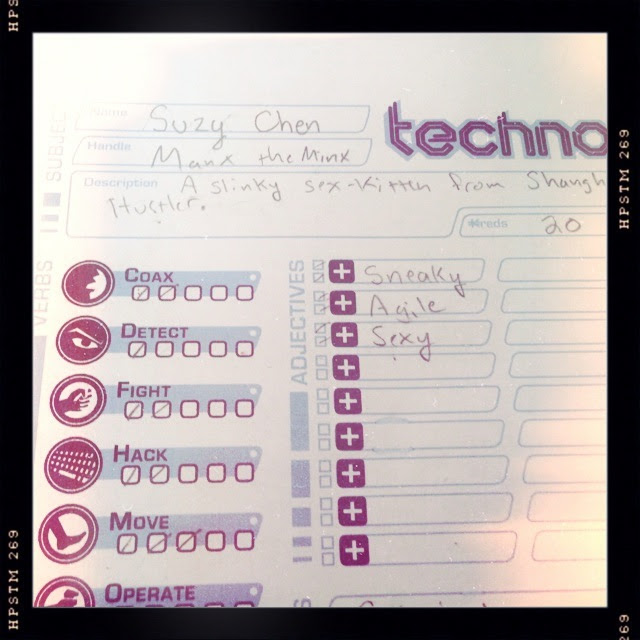
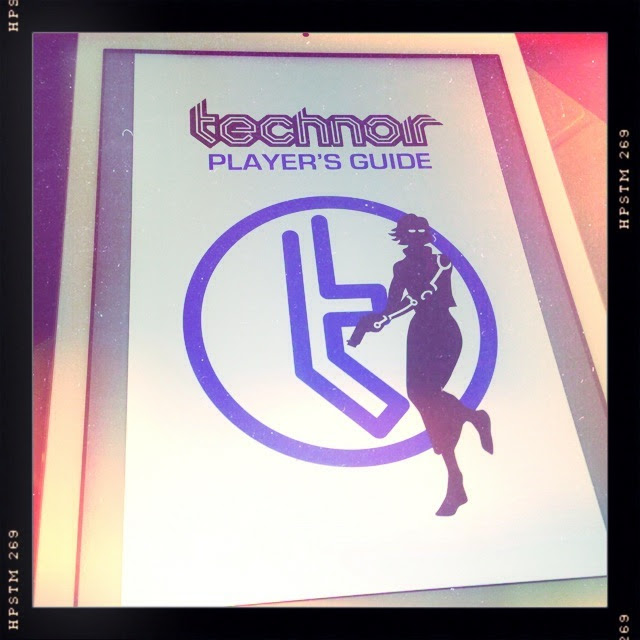

I picked up a copy of this at Gencon last year and haven’t had a chance to play it yet (the story of my life). It sounds like alot of fun. Any other thoughts you might have about it I’d love to hear. It’s hard to beat hands-on feedback.
I picked up a copy of this at Gencon last year and haven’t had a chance to play it yet (the story of my life). It sounds like alot of fun. Any other thoughts you might have about it I’d love to hear. It’s hard to beat hands-on feedback.
Is it FATE based?
Is it FATE based?
What what I can tell it is it’s own system. I didn’t get to do much more then skim through it so I can’t provide much info personally.
What what I can tell it is it’s own system. I didn’t get to do much more then skim through it so I can’t provide much info personally.
It is its own system. It uses an Adjective mechanic to set the tone for scenes and outcomes. So, if you’re trying to get in good with a loan shark (for example), you might try to give them the Adjective ‘trusting’ or ‘friendly.’ You narrate in your various tags to determine your die pool and then roll. If you succeed, you give them the Adjective and then the GM adjusts the story accordingly.
It is very much a game about relationships and connections, much like the noir fiction it is based on.
It is its own system. It uses an Adjective mechanic to set the tone for scenes and outcomes. So, if you’re trying to get in good with a loan shark (for example), you might try to give them the Adjective ‘trusting’ or ‘friendly.’ You narrate in your various tags to determine your die pool and then roll. If you succeed, you give them the Adjective and then the GM adjusts the story accordingly.
It is very much a game about relationships and connections, much like the noir fiction it is based on.
Building on what Jason said, the goal of the game is to keep a laser sharp focus on relationships to the point that there aren’t even rules to cover things like skill checks. So in situations like picking a lock, success is solely at the discretion of the GM based on what will advance the plot and lead to the most interesting conflict between characters.
Even when there’s conflict between characters, there’s no mechanic to just kill someone. The idea is that after each adjective is applied, everyone reevaluates how their character will act now that that adjective is a true fact in the fiction.
It’s a system with a lot of interesting ideas including what might be the most satisfying investigation/plot generation method I’ve ever come across (it runs off of Fiasco-like playsets in a really elegant way).
Building on what Jason said, the goal of the game is to keep a laser sharp focus on relationships to the point that there aren’t even rules to cover things like skill checks. So in situations like picking a lock, success is solely at the discretion of the GM based on what will advance the plot and lead to the most interesting conflict between characters.
Even when there’s conflict between characters, there’s no mechanic to just kill someone. The idea is that after each adjective is applied, everyone reevaluates how their character will act now that that adjective is a true fact in the fiction.
It’s a system with a lot of interesting ideas including what might be the most satisfying investigation/plot generation method I’ve ever come across (it runs off of Fiasco-like playsets in a really elegant way).
Sounds like I need to do a little more then just skim it! This really sounds like a highly interesting concept.
Sounds like I need to do a little more then just skim it! This really sounds like a highly interesting concept.
Right on, thanks all.
Right on, thanks all.